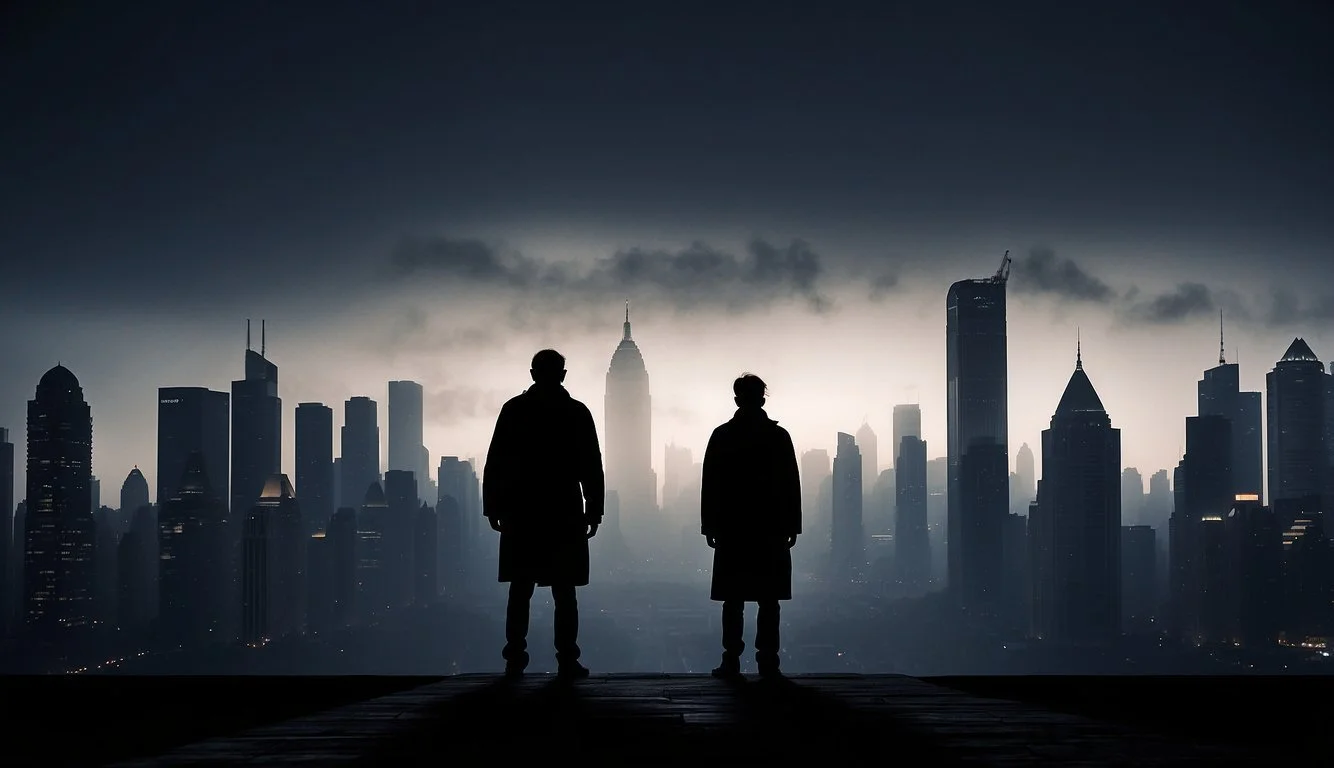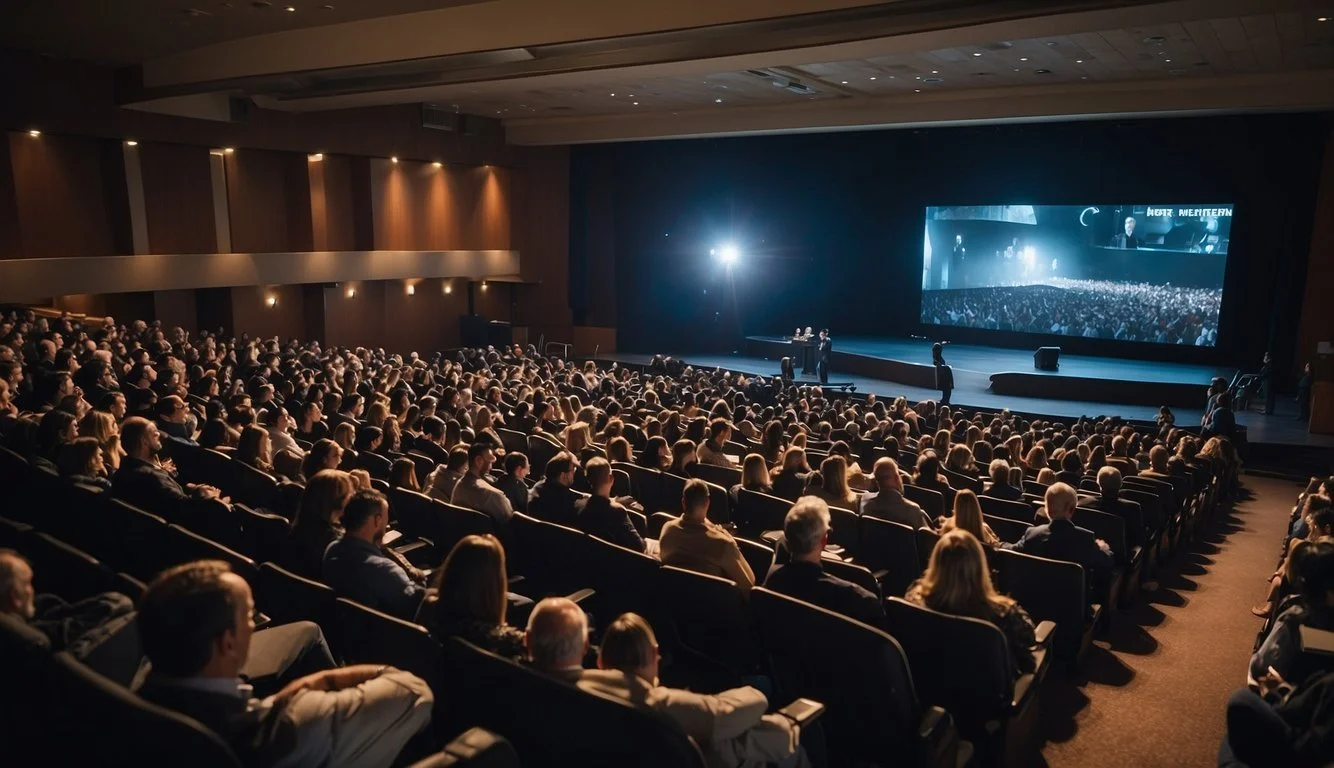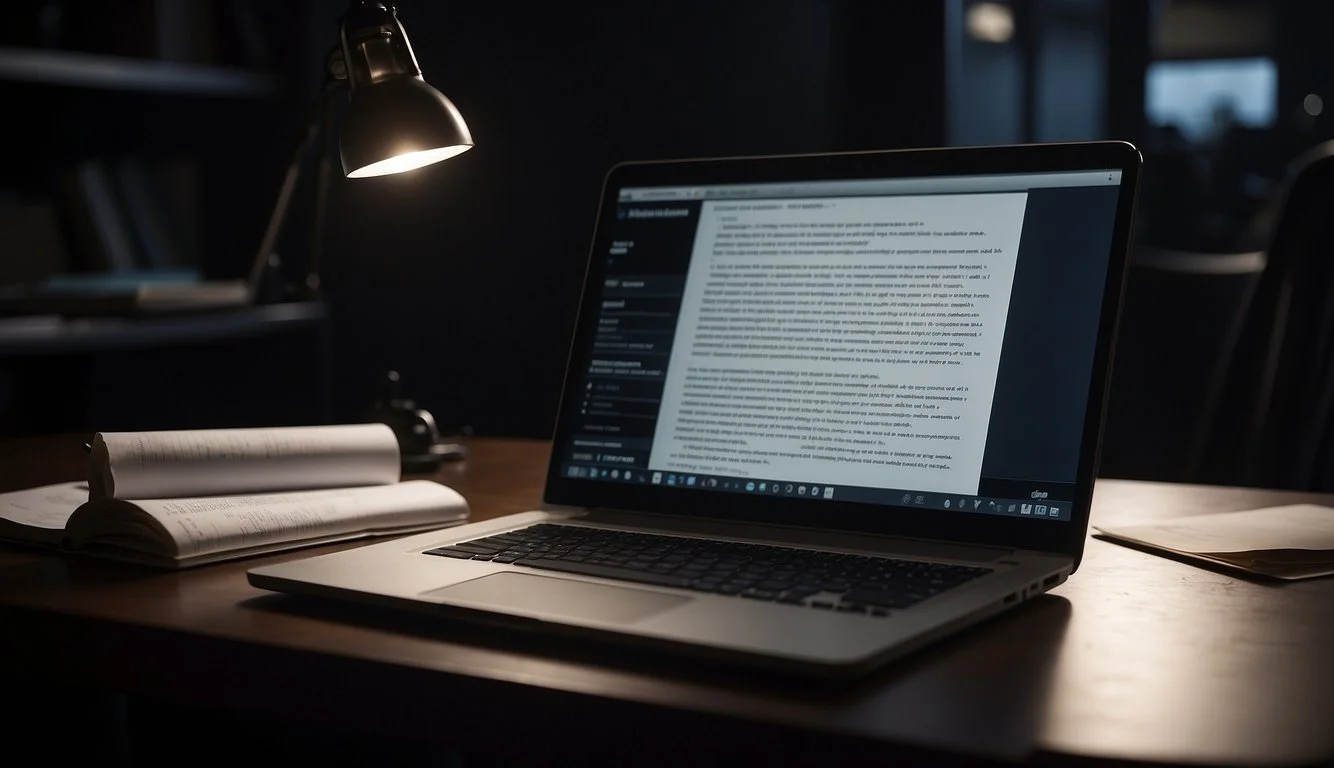Documentary Review: The Dissident (2020)
An In-Depth Analysis of a Gripping True Story
Bryan Fogel’s documentary "The Dissident" provides a gripping exploration of the events surrounding the murder of Saudi journalist Jamal Khashoggi. Drawing viewers into the heart of a politically charged crime, Fogel meticulously pieces together the chilling details of Khashoggi’s assassination inside the Saudi consulate in Turkey.
The film illuminates the alleged involvement of Saudi Crown Prince Mohammed bin Salman, presenting a compelling case that intertwines high-stakes diplomacy and brutal reality. With a run time of 1 hour and 59 minutes, this PG-13 thriller keeps audiences on edge with its unflinching narrative and comprehensive examination of the broader implications on freedom of the press and human rights.
Supported by gripping testimonies and substantial investigative journalism, "The Dissident" doesn't just recount a tragic incident; it challenges viewers to reflect on the power dynamics and ethical dilemmas at play in modern geopolitics. This documentary serves as both a tribute to Khashoggi's legacy and a powerful call for accountability in the face of unchecked state violence.
Overview of 'The Dissident'
"The Dissident" offers a revealing look into the tragic murder of Saudi journalist Jamal Khashoggi, directed by Bryan Fogel. The documentary covers Khashoggi's demise, the production details, and its subsequent release and distribution.
Film Synopsis
"The Dissident" chronicles the chilling events leading up to and following the murder of Jamal Khashoggi in October 2018. Khashoggi, a journalist for The Washington Post, was killed inside the Saudi Arabian embassy in Turkey. The film provides a detailed recount of his last moments, obtained from audio recordings and testimonials, and explores the purported involvement of Saudi Crown Prince Mohammed bin Salman in the orchestrated assassination. Fogel's documentary also highlights Khashoggi's work as a journalist and his outspoken critiques of the Saudi regime, interpreted through interviews with his fiancée and colleagues.
Production Background
Directed by Bryan Fogel, known for his Oscar-winning documentary "Icarus," "The Dissident" leverages Fogel's expertise in investigative storytelling. The production took place over two years, with shoots in multiple countries to gather perspectives from various experts and insiders. Significant emphasis was placed on authenticity, ensuring that the film narrated Khashoggi's story based on verified facts and firsthand accounts. Using sophisticated visualizations of digital spying and state surveillance, the production team aimed to provide an immersive and accurate representation of the events. The documentary's creation involved collaboration with several investigative journalists, adding credibility to its narrative.
Release and Distribution
"The Dissident" premiered at the Sundance Film Festival on January 24, 2020. Despite its critical acclaim, distribution faced several challenges due to the film's sensitive subject matter and its direct confrontation with powerful entities. Several major distributors hesitated to acquire the documentary, but it eventually found distribution through independent channels. The film was released to a broader audience on December 25, 2020. Critics praised the documentary for its gripping storytelling and thorough investigation, and it garnered high ratings on platforms like Rotten Tomatoes, where it holds a 96% Tomatometer score.
Themes and Analysis
"The Dissident" delves into critical themes that scrutinize human rights, freedom of speech, and the intricate interplay of power and politics, especially in the context of Saudi Arabia's leadership.
Human Rights Advocacy
"The Dissident" brings the harrowing narrative of Jamal Khashoggi's murder to the forefront as an emblematic human rights violation. The film underscores the dire consequences of opposing authoritarian regimes and highlights the global struggle for human rights.
Bryan Fogel’s documentary portrays Khashoggi as a symbol of journalistic integrity and bravery. Through interviews and evidence, the documentary appeals to universal human rights principles, aiming to galvanize international support and action against such atrocities. The film serves as a clarion call, imploring viewers to recognize and combat human rights abuses globally.
Freedom of Speech
The suppression of free speech and the dangers faced by outspoken journalists are starkly portrayed in "The Dissident." Jamal Khashoggi’s relentless quest for truth and his vocal criticism of the Saudi government are central to this narrative.
The documentary illustrates the extreme lengths to which authoritarian regimes will go to silence dissent. It paints a grim picture of the risks journalists face and the importance of a free press. Fogel's film demands attention to the erosion of journalistic freedoms and invites audiences to consider the immense value and fragility of free speech.
Power and Politics
At its core, "The Dissident" is not just about an individual but about the broader implications of political power and corruption. The film delves into the alleged involvement of Saudi Crown Prince Mohammed bin Salman in Khashoggi’s murder, shedding light on the murky waters of international diplomacy and political maneuvering.
By illustrating the intersection of wealth, power, and political ambition, the documentary reveals how state-sponsored actions can undermine global norms and human rights. Through detailed analysis, it aims to hold influential leaders accountable and provoke an international dialogue on the responsibilities of political figures in safeguarding human rights.
Critical Reception
"The Dissident" has generated significant attention from critics and audiences alike. Its gripping portrayal of journalist Jamal Khashoggi's murder has sparked intense discussions, and it has been recognized in various award circuits for its impact.
Critical Response
Critics praised "The Dissident" for its compelling narrative and meticulous investigative approach. Bryan Fogel, the director, received accolades for bringing this complex and dangerous story to the screen. The film was often described as "urgent" and "essential viewing," highlighting its chilling recount of Khashoggi's murder. Publications like Roger Ebert and Eye for Film commended the documentary for shedding light on issues of freedom of the press and the perils faced by journalists. The documentary's blend of crime thriller elements with investigative journalism earned high ratings across numerous platforms.
Audience Reaction
The audience's reaction to "The Dissident" was equally impactful. Viewers expressed a strong emotional response, resonating with the bravery and tragedy of Khashoggi's story. The film sparked widespread social media discussions about human rights and governmental accountability. On platforms like Rotten Tomatoes and IMDb, "The Dissident" achieved favorable scores, reflecting the audience's appreciation of both its storytelling and its critical message. Many viewers found the documentary to be not only informative but also deeply moving, prompting further interest and activism surrounding the issues presented.
Award Considerations
"The Dissident" garnered attention during the awards season. It was considered for several prestigious awards, including those at international film festivals and industry gatherings. It received nominations for its documentary filmmaking, direction, and screenplay. Such acknowledgments from bodies like the Academy Awards and Sundance Film Festival validated its significance in the genre. While it won several accolades, it also competed fiercely with other notable documentaries of the year. The recognition affirmed "The Dissident's" impact on both cinema and global discourse regarding press freedom and human rights.
Director's Approach
Bryan Fogel's documentary "The Dissident" employs a precise blend of impactful filmmaking, methodical interview techniques, and a structured narrative to illuminate the tragic story of journalist Jamal Khashoggi. Fogel's approach results in a compelling and deeply moving film that skillfully conveys the gravity of its subject matter.
Filmmaking Style
Bryan Fogel uses a multifaceted filmmaking style that combines documentary footage, dramatic re-enactments, and digital animations to tell Khashoggi's story. This approach helps to visually represent the complex details of the murder that took place within the confines of the Saudi consulate.
Fogel also places emphasis on high-quality production values, using crisp and clear visual and audio recordings. This engages the viewers not just emotionally, but also visually, ensuring the gravity of the events remain impactful.
Interview Techniques
The film's interviews are conducted with key figures intimately connected to Khashoggi's case, including colleagues, friends, and technology experts. Fogel's techniques are direct and probing, allowing interviewees to provide in-depth and personal insights.
These interviews are juxtaposed with archival clips and personal anecdotes, enriching the narrative. Fogel maintains a neutral but empathetic tone, which helps build a connection between the viewers and the individuals who knew Khashoggi personally.
Narrative Structure
Fogel employs a linear narrative structure interwoven with flashbacks to reveal key moments in Khashoggi's life and career. The film starts with his entrance into the Saudi consulate and subsequently unravels the events that led to his murder.
This structure enables viewers to comprehend the broader political implications and the personal journey of Khashoggi. The use of chronological progression paired with poignant revelations keeps the viewer engaged, providing both emotional depth and a comprehensive understanding of the political context.
Significant Moments in the Documentary
"The Dissident" (2020) presents several moments that profoundly impact the narrative, focusing on interviews with key figures and scenes that capture critical developments in the investigation of Jamal Khashoggi's murder.
Key Interviews and Testimonies
The documentary builds its foundation on interviews with individuals closely tied to Jamal Khashoggi's life and tragic end. Notably, Hatice Cengiz, Khashoggi’s fiancée, provides poignant insights into his character and the personal anguish of losing him. Her intimate recollections offer a human dimension to the broader political narrative.
Omar Abdulaziz, a Saudi dissident, shares chilling details about the surveillance and threats faced by regime critics. His account reveals the broader context of repression against dissenters, making the documentary's exploration of state-sponsored violence more tangible.
These interviews are supplemented by testimonies from journalists, investigators, and international experts. Their contributions help to demystify the complexities of the assassination plot, presenting a multi-faceted view of the geopolitical stakes involved.
Pivotal Scenes
Several scenes in "The Dissident" leave lasting impressions due to their emotional and factual depth. The re-enactment of Khashoggi's final moments within the Saudi embassy is both harrowing and illuminating, drawing viewers into the gravity of his plight. This scene is based on transcripts from recordings, providing a stark, almost forensic insight into the brutality of the act.
Footage depicting the global reaction to Khashoggi’s murder, including protests and international outcry, underscores the broader implications of his death. This montage of global dissent highlights the international community's stand against authoritarianism.
Another crucial scene shows digital forensic experts uncovering the intricacies of the cyber-surveillance campaign against Saudi dissidents. This scene not only connects the dots between cyber warfare and physical violence but also exposes technological vulnerabilities exploited by authoritarian regimes.
Technical Aspects
The documentary "The Dissident" excels in several technical areas that enhance its storytelling, including cinematography, editing, and music and sound design. Each element contributes significantly to the compelling nature of the film.
Cinematography
The cinematography in "The Dissident" is striking yet restrained, utilizing a variety of camera angles and shots to create a gripping visual narrative. The use of close-ups brings viewers intimately into the emotional world of the subjects, particularly during interviews and pivotal moments. Drone shots and sweeping vistas are employed to juxtapose the personal story against grander geopolitical backdrops. The lighting is meticulously managed to enhance the mood, often employing shadows and chiaroscuro techniques to underline the film’s darker themes.
Editing
Editing in the documentary is both seamless and purposeful, driving the narrative forward with precision. The choice of footage, combined with a non-linear timeline, helps build suspense and engagement. Intermittently, the film incorporates real-time footage with re-enactments and animation, which enhances understanding without breaking the flow. Cutting between interviews, archival footage, and illustrative animations, the transitions are smooth and natural, maintaining viewer immersion. The pacing is deliberate, ensuring that each segment gains enough attention without lingering unnecessarily.
Music and Sound Design
Music and sound design play a critical role in "The Dissident," heightening the emotional and dramatic tone of the film. The score, composed by Adam Peters, uses a mix of strings, percussion, and electronic elements to mirror the tension and urgency of the narrative. The sound design includes ambient noises that enrich the viewing experience and underscore moments of tension and revelation. Dialogue is crisp and clear, ensuring that the spoken words are always prominent, even when layered against complex audio landscapes.
Each of these technical facets is skillfully executed, combining to make "The Dissident" not only informative but also highly engaging on a visceral level.
Real-World Impact
"The Dissident" (2020) directed by Bryan Fogel, sheds light on the grave consequences of Jamal Khashoggi's murder and the subsequent political and social upheaval that ensued.
Influence on Policy
The release of "The Dissident" brought significant attention to Saudi Arabia's human rights violations. Governments around the world, particularly in the United States and Europe, faced renewed pressure to re-evaluate their diplomatic and economic relationships with Saudi Arabia.
In the U.S., lawmakers introduced measures to restrict arms sales to the kingdom. Similarly, some European countries debated sanctions. The film underscored the need for greater accountability and transparency in international relations, pushing policymakers to act.
Social Media and Public Discourse
Social media platforms became pivotal in amplifying the film's message. Activists, journalists, and politicians used Twitter, Facebook, and other platforms to discuss the implications of Khashoggi's murder.
Public opinion shifted, with an increased awareness about the dangers faced by journalists. The documentary also highlighted the role of social media in spreading propaganda, showcasing how online platforms can both inform and mislead the public. This prompted discussions about the responsibilities of tech companies in moderating content and protecting free speech.
Comparative Discussion
"The Dissident" (2020) directed by Bryan Fogel, stands out by blending investigative journalism with a riveting narrative. Comparing it to other similar documentaries showcases its unique approach. Additionally, the film's historical context adds depth to its portrayal of modern political repression.
Similar Documentaries
Bryan Fogel's "The Dissident" is often compared to other hard-hitting documentaries like Alex Gibney's "Citizen K" and "We Steal Secrets: The Story of WikiLeaks." These films share a focus on political crises and whistleblowers' plights.
"Citizen K" delves into Russian oligarch Mikhail Khodorkovsky's downfall. Both films explore the intersection of political power and personal bravery. The tension and stakes involved reveal systemic corruption and the human cost of resistance.
"We Steal Secrets" examines the controversial release of classified information by WikiLeaks. Fogel's work and Gibney's documentaries depict the peril journalists and activists face. These films underscore the importance of freedom of the press and governmental transparency.
Historical Contextualization
"The Dissident" situates itself within a broader historical narrative of political oppression across different regimes. The film primarily documents the murder of Saudi journalist Jamal Khashoggi. His assassination in a Saudi consulate in Turkey reflects broader patterns of state-sanctioned violence.
This documentary can be connected to historical incidents like the assassination of Russian political figures such as Anna Politkovskaya, highlighting the anti-democratic trends in certain governments.
Moreover, Fogel’s work draws parallels with revelations from the Arab Spring, emphasizing the continual struggle for freedom. It shows how digital tools and global interconnectedness influence modern political resistance and authoritarian responses. The historical context enriches the understanding of Khashoggi's life and death, making it a crucial component of the documentary's narrative.
Concluding Remarks
"The Dissident" by Bryan Fogel is a compelling documentary shedding light on the tragic fate of journalist Jamal Khashoggi. The film meticulously documents the events surrounding his assassination.
The storytelling is clear and impactful, combining in-depth research and interviews with key figures. The director employs a thriller-like style that keeps viewers engaged and questioning the nature of power and corruption.
The documentary effectively highlights the dangerous environment for journalists in oppressive regimes. The haunting narrative ensures that Khashoggi’s story remains in public memory. This film is both a tribute to his work and a stark reminder of the costs of speaking truth to power.
The Dissident urges viewers to critically examine global politics and media freedom. Its concise and potent message is an important contribution to contemporary documentary cinema. The film leaves audiences with much to ponder about justice and ethical journalism.







